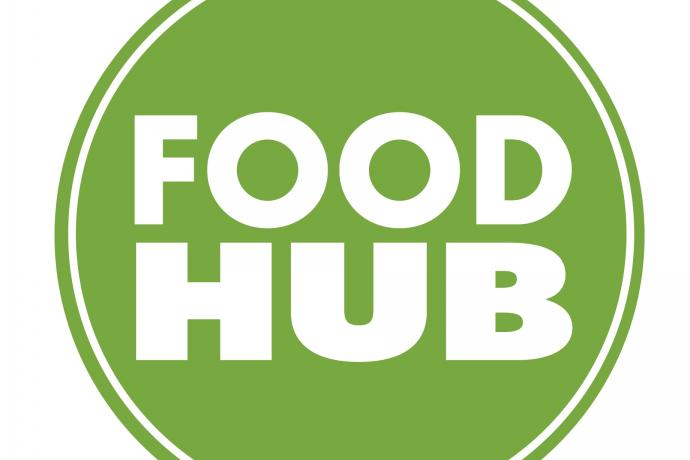"Northwest Bakery ISO Local, Organic Peaches"
FoodHub Rolls Out as a Matchmaker between Farmers, Food Producers, and Buyers
Published 02-02-10
Submitted by Ecotrust

This growing season, Northwest food producers and food buyers will begin utilizing FoodHub, a new online resource that simplifies the process of making connections with each other. Today, following a successful 90-day beta-testing period, FoodHub celebrated its official launch at a luncheon in Portland, Ore., that featured USDA Deputy Undersecretary Ann Wright as the keynote speaker. Wright heralded FoodHub as an innovative example of the USDA's Know Your Farmer, Know Your Food initiative at work; one that embraces new technology to bolster a regional food system, expand market channels, and bridge rural and urban economies.
A social venture business of the nonprofit Ecotrust, FoodHub (food-hub.org) is designed to increase food trade in the Pacific Northwest. It is the only network in of its kind that accommodates food producers and food buyers of every scale and production type in the Pacific Northwest and parts of Alaska. Customizable search features allow a buyer to hone in on the exact product specifications they are seeking. For wholesale food buyers, FoodHub makes finding local food as easy as it is for someone to search for Mr. or Ms. Right on Match.com®.
"FoodHub presents information in a way that hasn't been available before," said David Hoyle, owner of Creative Growers in Noti, Ore. "It's the quickest and easiest way for caterers, chefs and grocers to find growers, learn about what they have and determine if they're a good fit. We do business in a very personal way, but FoodHub is a conversation starter, a door opener, a meeting place."
While in beta, 280 Northwest farmers, ranchers, fishers, food producers and wholesale food buyers became registered users of FoodHub. Northwest food producers promoted the availability of more than 560 products to the buying community; buyers expressed a need for 646 products from local sources. An analysis of user data during the month of January, 2010, shows 1,700 visitors and 14,000 page views from major cities in the Northwest, as well as San Francisco, New York and Canada.
FoodHub's development team devoted the beta period to expanding the site's taxonomy, creating product and ingredient categories for the Northwest dairy, beer, wine and spirits sectors, in addition to the categories for fruits, vegetables, meat, fish, herbs, grains, dry beans and nuts already in place. User feedback and an analysis of usage trends will continue to shape the structure and delivery of new features and improvements to ensure that the site is intuitive and successful for both buyers and sellers.
"Food miles, food safety, animal well-being and exceptional quality are important issues that guide my purchasing practices," said Joe McGarry, an executive chef with Bon Appetit Management Company. "FoodHub allows me to use these factors to sort through the database and find the best suppliers."
Sophisticated search capabilities allow buyers, both large and small, to instantly discover ready suppliers with a few clicks of their computer keyboard. Conversely, sellers can use FoodHub search features to identify new buyer leads and build targeted customer databases. All registered users can complete an online profile that includes a detailed description of their operation and preferred methods for doing business. FoodHub supports both direct market relationships and leverages existing distribution channels to encourage growth in regional food sales.
With an annual membership fee of $100, FoodHub is a cost-effective business tool. In addition to its search and connect functions, FoodHub can professionalize communications and transactions between parties with its message center, preferred contacts feature, and standardized purchase orders and invoices.
Creation of FoodHub
Developed using open-source technology with private foundation, nonprofit and government resources, FoodHub is intended for broad use throughout the agricultural community. Backers expect FoodHub will strengthen rural communities and make it much easier to localize supply chains. To ensure its success, partnerships have been formed with organizations active in Northwest food buying and food selling circles, including agri-business councils, food product commissions, distributors, grocery retailers, chefs and restaurants, farm to school programs, the Washington State Department of Agriculture, and the Oregon Department of Agriculture, among many others. View the complete list of funders and collaborators at food-hub.org/supporters.
About Ecotrust's Food & Farms Program
Ecotrust's mission is to inspire fresh thinking that creates social equity, economic opportunity, and environmental well being. With regard to our Food & Farms program, we improve public understanding of agriculture and the challenges it faces and increase the market share of locally grown, processed, and manufactured foods. Whether by introducing a farmer to a chef or a food processor to an institutional buyer, Ecotrust is a trusted "benevolent broker" that has been making connections between food buyers and sellers in the Pacific Northwest for a decade. Learn more at ecotrust.org.
Editor's note: Contact Amy Brown amyb@seed-pr.com for test password and temporary demo account. Images of screen captures are also available

Ecotrust
Ecotrust
Ecotrust's mission is to inspire fresh thinking that creates economic opportunity, social equity and environmental well-being. Ecotrust is headquartered in Portland and is a unique organization; it integrates public and private purpose and for-profit and non-profit structures. Ecotrust's many innovations include co-founding the world's first environmental bank, starting the world's first ecosystem investment fund, creating a range of programs in fisheries, forestry, food, farms and children's health, and developing new scientific and information tools to improve social, economic and environmental decision-making. Ecotrust works locally in ways that promise hope abroad, and it takes inspiration from the wisdom of Native and First Nations. Over nearly 20 years, Ecotrust has converted $60 million in grants into more than $300 million in capital for local people, businesses, and organizations from Alaska to California.
More from Ecotrust

